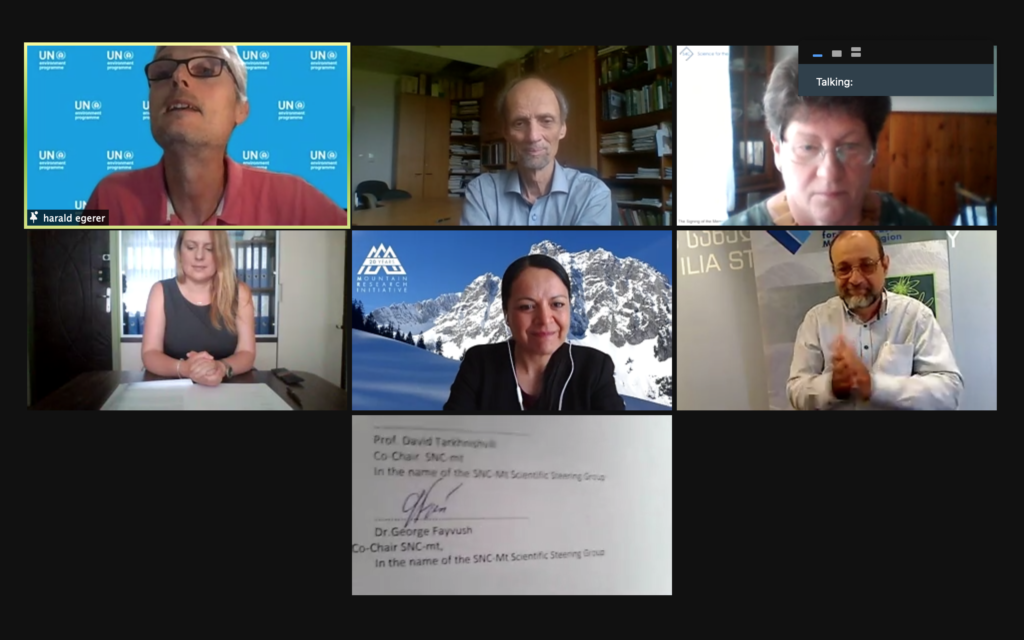A memorandum of understanding between the Science for the Carpathians (S4C) and the Scientific Network for the Caucasus Mountain Region (SNC-mt) aims to support closer links between researchers and institutions across the two regions.
On the 24th of June, during the Forum Carpaticum 2021, the Mountain Research Initiative was invited to witness the signing of a memorandum of understanding between the Science for the Carpathians (S4C) and the Scientific Network for the Caucasus Mountain Region (SNC-mt). The aim of this new cooperation is to facilitate the exchange of information, experiences, and success stories between the two networks, as well as to develop, finance, and implement joint activities going forwards.
S4C and SNC-mt are networks of researchers working on mountainous regions that share similar objectives; their research agendas contain similar focus areas, with the ultimate aim of understanding the socio-ecological systems of their respective mountain regions. These networks are supported by and cooperate with the UNEP Office in Vienna, Secretariat of the Carpathian Convention, which works on international mountain ecosystems.
Both S4C and SCN-mt coordinate their activities and cooperate with the Mountain Research Initiative, the International Scientific Committee on Research in the Alps (ISCAR), and other relevant scientific networks. At the same time, they are committed to developing scientific and transdisciplinary approaches tailored to the respective contexts of the Carpathian and the Caucasus regions.

Pictured: The virtual signing of the memorandum of understanding between S4C and SNC-mt taking place during the Forum Carpaticum 2021. Image credit: S4C.
Cooperation between these networks will ensure the coordination of research and collaboration across disciplines and national boundaries, advocate for a pan-Carpathian research area, and facilitate the development of research capacities and foster dialogue between research, policy, and practice. It will also improve research capacity for and within the Caucasus region (Armenia, Azerbaijan, Georgia, Islamic Republic of Iran, Russian Federation, Turkey), making the Caucasus more prominent in European and global contexts, and strengthen the nexus between scientists, practitioners, and decision-makers in order to link research to the needs of sustainable development and environmental protection.
This article was adapted from the original media release published on the Science for the Carpathians website.
Cover image by Paul Ketchum.







